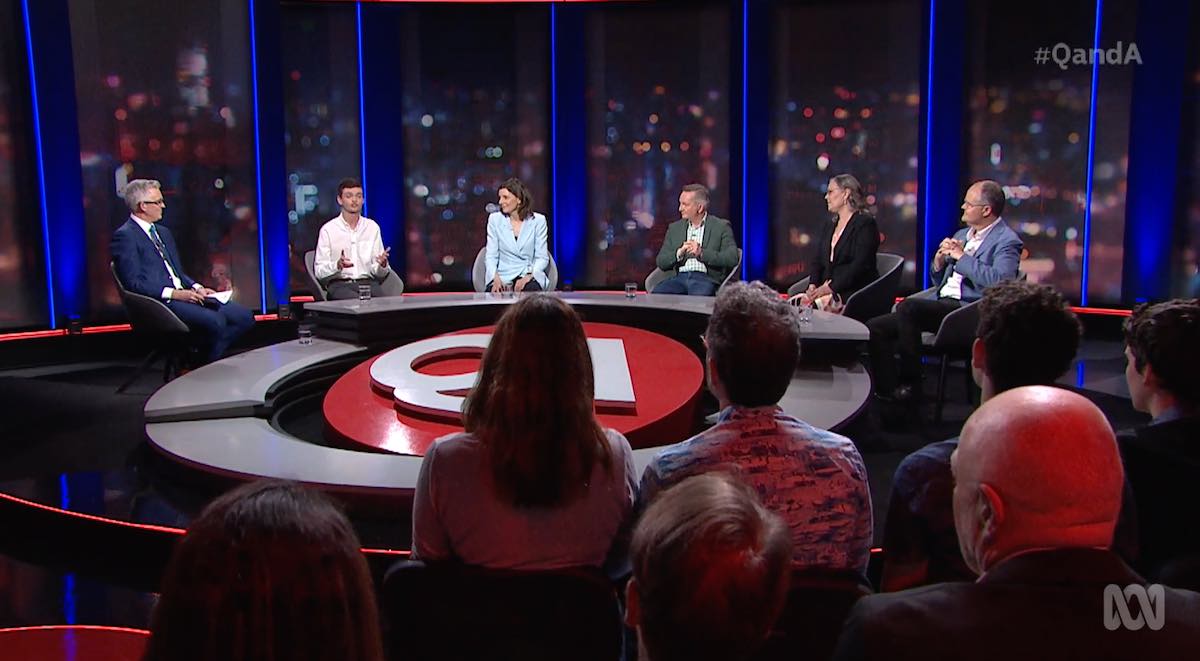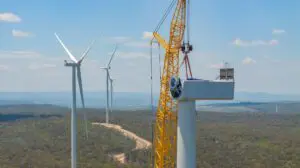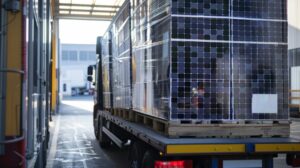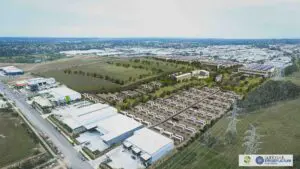The federal Coalition’s now ideological push for nuclear power – a technology it refused to countenance in 10 years of government – is taking a truly bizarre turn. And I guess we should be thankful to the ABC’s Q+A program for highlighting it, although I doubt that was their intention.
The ABC framed nuclear as the main topic of conversation in Monday’s program and invited energy minister Chris Bowen, the Opposition spokesman Ted O’Brien, economist Nicki Hutley, independent MP Allegra Spender, and a 17-year-old schoolboy who thinks nuclear is great.
It’s not clear what Q+A had in mind, or why it gave a platform – for the second time in three months – to a schoolboy with no particular expertise (and apparently no big social media following) apart from a genuine enthusiasm to parrot the talking points of the nuclear and fossil fuel industries.
But it was O’Brien himself who illustrated just how absurd the Opposition’s push for nuclear has become when asked to tell the audience how much it would cost. He had disputed Bowen’s figure of $18,000 a kW – gleaned from CSIRO’s GenCost report – and suggested some experts thought it could be half that.
DAVID SPEERS: You’ve given us a very big range, though. Surely you must have an idea what the cost is if you’re committing to this?
TED O’BRIEN: Yes, we do.
DAVID SPEERS: And what is it?
TED O’BRIEN: I’m not going to pre-empt our policy.
DAVID SPEERS: It’s a secret, is it?
TED O’BRIEN: But here’s the thing. It is … until we release our policy, David, I’m not going to get the specifics.
DAVID SPEERS: But have you worked it out or not?
TED O’BRIEN: We are doing the modelling right now –
DAVID SPEERS: So you don’t know.
TED O’BRIEN: And we are doing the modelling right now, based on actual data. Based on actual data.
DAVID SPEERS: What does that mean?
TED O’BRIEN: Well, good question.
Good question indeed. The cost of large-scale nuclear is well established – despite the schoolboy insisting that “we don’t know” and that we should “lift the ban” to find out – and it’s what the CSIRO and any other energy expert says it is: hideously expensive.
O’Brien, and the Coalition, are playing ducks and drakes by holding out the promise of so-called small nuclear reactors, but the problem with these is that they don’t exist, and no western company even has a licence to build one. So it’s not really clear what “actual data” O’Brien thinks he has access to.
O’Brien and the 17yo then went on to repeat some of the usual claptrap about renwewables and nuclear which has so polluted the energy debate in this country – that renewables are “unreliable” and that countries with nuclear power have cheaper energy bills than those that don’t.
Here’s a big hint why they do, and it’s called subsidies. In France, the government has had to bail out its now state-owned nuclear companies on multiple occasions, and last year alone spent $40 billion shielding consumers from soaring bills as half of the company’s nuclear fleet couldn’t be used.
Germany, cited as the bad boy of renewables because it has closed down nuclear and has high energy bills, has always had high energy bills – even before it made its first moves into renewables. And part of that reason is that it uses electricity consumption as a general revenue source, so piles a heap of different taxes on it.
The Canadian province of Ontario, cited by O’Brien, has its own subsidy scheme that its Financial and Accountability Office estimates is worth $C120 billion over 20 years. This in a province of 14 million people.
The Ontario FAO says these subsidies reduce the bill to the average rate payer by nearly one third. Without it, Ontario households would face annual electricity bills of more than $C2,000, which is not a lot different to households in Australia, who also have to pay for a vast existing grid, and who have been hit by the soaring cost of coal and gas.
But, as RenewEconomy has pointed out on many occasions, this whole argument is a Furphy, just like the Coalition’s supposed wrestling with net zero by 2050.
The first SMRs won’t be built anywhere in the western world until the end of the decade, and even Ontario government acknowledges it won’t be able to complete any more until the middle of the next decade.
Energy experts who admire the technology, such as Alan Finkel, say it could not possibly be built in Australia before the 2040s, because there is no regulatory infrastructure or local expertise. The industry would have to be built from scratch.
The net zero target for 2050 requires Australia to have a decarbonised grid well before that, by 2035, contrary to the Coalition’s belief that the 2050 target is an excuse to do little in the interim.
The frightening temperature records and extreme weather events of the past year is prompting climate scientists, and many global leaders, to say that we need to go even fast than that. And this is the point that Spender and Hutley were making – put the nuclear issue to one side and get on with the technologies we have.
“(Nuclear) is not the short-term solution … basically it’s too slow, it’s too expensive,” Spender said. “The action we need to take is in the next 10 years. I think the ban is honestly irrelevant.”
Which means that if, like the Coalition is doing, you suggested that there should be a moratorium on wind and solar and storage and that we should wait for a technology that won’t be rolled out in commercial scale for more than a decade, you are arguing that you don’t accept climate science, and that you don’t care.
It was interesting to note, however, the CSIRO “live tweeting” during the program, outlining the findings of its GenCost program.
The CSIRO, along with the Australian Energy Market Operator, has become the target of a Coalition and conservative media campaign to discredit them, mainly because they don’t buy into their ideological war on renewables.
“I look to the experts,” said Hutley. “And like the Minister, I look at the CSIRO report, which was done in conjunction with the Australian Energy Market Operator. I don’t think anyone in this room, there may be one, would know more than they would on this subject. Quite frankly.”
Which is why the Coalition, and it seems, the ABC, were happy to have a teenager on the panel rather than an energy expert. Australia.







